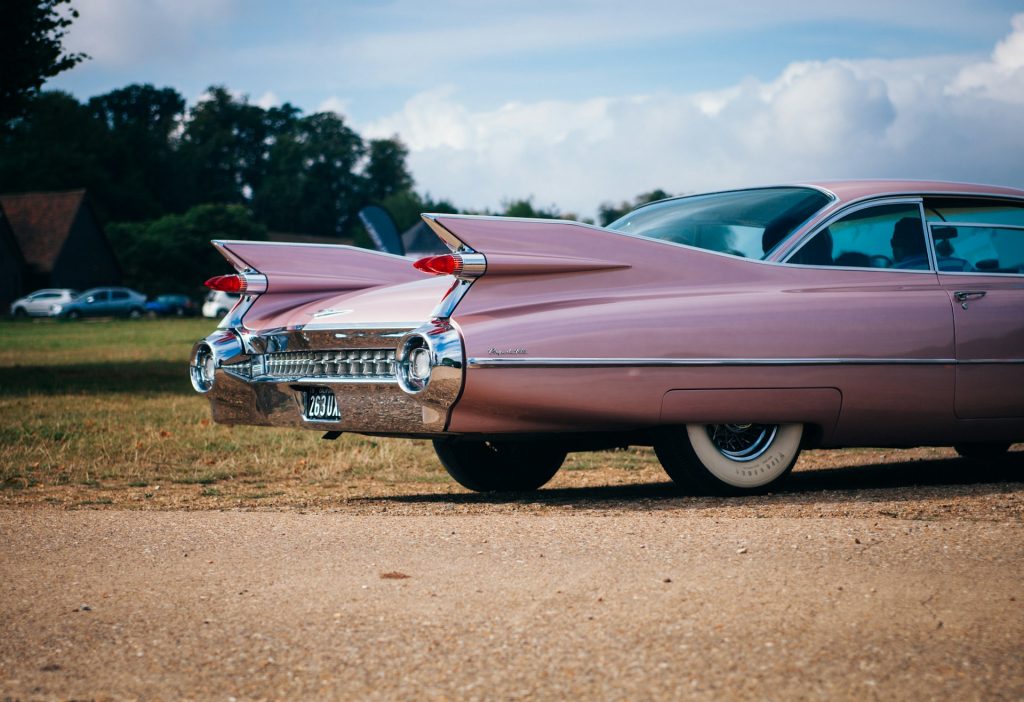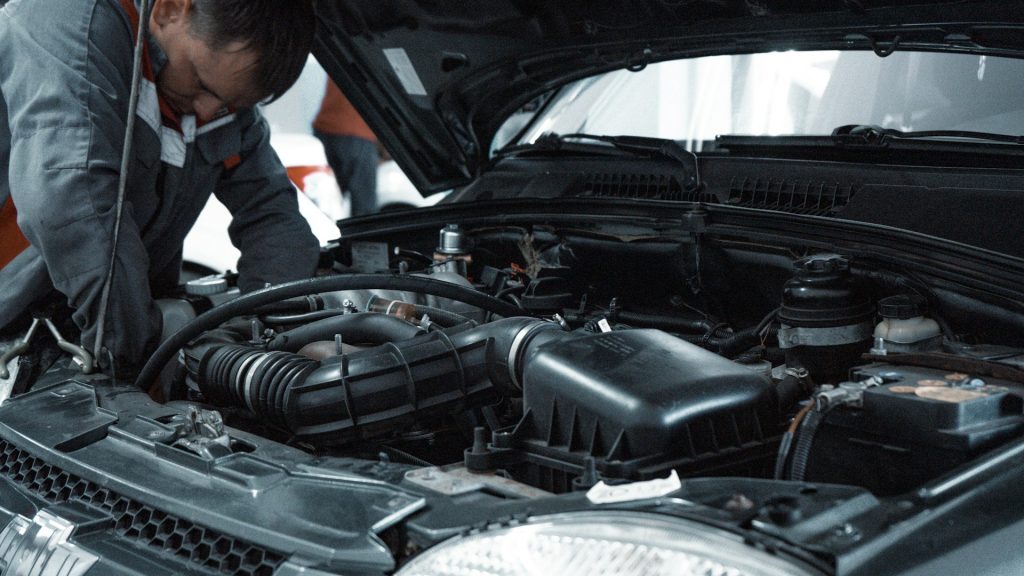Is it possible to live in New Zealand without a car? Of course, it is. However, this lifestyle does come with some obvious drawbacks.
It will be hard for students with families without a car for several reasons:
- Using public transport is often more expensive than using an inexpensive private car;
- Due to the transport system, it is often necessary to make transfers, and this, as a rule, takes a long time. In addition, after 10 pm it can be very difficult to get to the suburbs;
- You will have to go far for groceries. Sometimes, you will face a situation when the nearest decent supermarket may be 2-3 km from your home;
- The situation is the same with schools, which is especially inconvenient for primary school children;
- And of course, to come to New Zealand and not enjoy country car trips on weekends, in our opinion, is almost a crime!

Used or New Car
The ideal way to buy a vehicle is to buy a new car from an official dealer. Auckland has dealerships for all well-known brands.
If the purchase of an expensive new car is not yet included in your plans, then we suggest paying attention to the used car market, which is represented by a large number of car dealers, as well as individuals selling mainly their own cars.
From Whom to Buy a Car in New Zealand
Purchase from an Individual
Pros:
- A large selection of all kinds of cars of different price categories and in different conditions;
- You can safely bargain and reduce the price by about 10%, and even more, if you are lucky and the sale is urgent, for example, in connection with the widespread here “moving abroad”.
Cons:
- Disunity. Sellers can be located in different parts of the city and it will take all day to see several selected cars;
- No warranty of any kind. Therefore, if you are not an experienced auto mechanic, then we highly recommend carrying out a car inspection in one of the city’s car services. This is a paid service with an average cost of $ 150. For this money, you will find out if the car has obvious problems and what problems need to be fixed for the next inspection.
Below are some reputable car dealerships that provide diagnostic inspection services:
- Automobile Association (AA)
- Vehicle Testing New Zealand (VTNZ)
- Vehicle Inspection New Zealand (VINZ)
- CarLab
Purchase from a car dealer
Pros:
- A warranty, which can also in the form of insurance against minor technical problems within 1 year after purchase. If at the initial stage of car exploitation a serious malfunction is revealed that the insurance cannot cover, you can contact the seller with a request to fix the problem. According to local law, the buyer is always insured against the purchase of substandard goods and responsible sellers always act within the law in order to preserve their reputation.
- Large assortment of cars in one place;
- The cars have passed pre-sale preparation, which means you get a clean car which it is pleasant to drive;
- Since the seller is not focused on selling a particular car, they can help you choose the right model based on your needs and conditions;
- You can and should bargain;
- When buying, the car dealer will independently make all the paperwork, and, if necessary, will help you get insurance.
Cons:
- The cost may be higher.
Where to buy
Online trading platform Trademe
It is New Zealand’s largest marketplace. Here you can find advertisements and auctions for the sale of cars from both private individuals and major car dealers. In the ad, the history of the car is available, which can also be viewed on the CarJam website using the car’s registration number. Short free reports are available and full reports are paid (free is usually enough).
Some people sell their car through less popular platform AutoTrader, where it’s cheaper to post ads.
Car dealers
Auckland has a large number of car dealers selling used cars, both used and not used in New Zealand. If possible, give preference to the larger and more reliable ones. For example, such as:
Ellerslie Sunday Car Market
Opening hours from 9-12 every Sunday, except for official holidays. The car market presents used cars from individuals in different price categories. Here you can also use the service of technical inspection of the car you are interested in, as well as register the purchased car for yourself.

What to pay attention to when buying a car
History of a vehicle
The number of previous owners, inspection history, loans, theft records, and other details can be checked on the CarJam website. It’s an important tool to help you make a confident decision. Alternatively, you can use the MotorWeb website, where you simply enter the vehicle’s number plate and get all the information you need.
The inspection expiration date (Warrant of fitness or WOF)
The sticker announcing the date of the next inspection is located in the upper right part of the windshield. According to the legislation, the inspection must be carried out every 6 months if the car was produced before 2000 and once a year if after. Operation of a vehicle without a valid WOF is prohibited, so the longer until the next inspection, the better. The cost of passing the technical inspection is about $ 40 + the cost of troubleshooting if any are identified.
The license expiration date
A license is actually a tax on a vehicle. The license is purchased for 1/3/6 or 12 months. Vehicle operation after license expiration is prohibited, therefore it must be updated timely. You can do it online, or by visiting:
- any Post Office
- Automobile Association (AA)
- Vehicle Testing New Zealand (VTNZ)
- Vehicle Inspection New Zealand (VINZ)
Tires
It is worth paying attention not only to the condition of the tires but also to ensure that all tires on the wheels are the same since in New Zealand only tire size and tread height are regulated. It is often possible to find a car with different tires on all four wheels, which can be unsafe.
Cambelt
As a rule, it must be replaced every 100,000 km. Some cars have a cam chain instead of a belt, which should be replaced less often, usually every 200,000 – 250,000 km. Therefore, if you buy a car with a mileage close to these figures, you should inquire whether the belt was replaced, since the procedure is quite expensive (about $ 750) and significantly affects the final cost of your car, or find a car with a chain mechanism.
If there was any scheduled maintenance
As a rule, during maintenance, the service centre issues a list of the work performed. Based on these data, it is possible to assess what work was done and how conscientiously the owner monitored the condition of the car. Not all car owners keep these papers, however, it is worth checking with the seller how and where he performed the service.
Windshield
Pay attention to the windshield, if there are even small chips on it, this can lead to a refusal to pass WOF and you will have to change the glass. Replacement costs start at $ 280.

Car loan
It is possible to get a car loan if you have a resident visa. For work visa holders, loans are granted much less willingly, but it is still possible depending on your creditworthiness, as well as the term and amount of the loan.
You can apply for such a loan in advance through a bank or financial institution. In addition, most dealerships also offer the option to help arrange financing directly at the showroom.
Registration of the purchased car
Once you have found a suitable vehicle, you must replace the vehicle owner. If you have a New Zealand license, you can do this online, others need to visit:
- Post Office
- Automobile Association (AA)
- Vehicle Testing New Zealand (VTNZ)
- Vehicle Inspection New Zealand (VINZ)
Car Prices in New Zealand
In New Zealand, car prices drop significantly with age. Take the Toyota Corolla as an example:
- Brand new (2025) – ~NZ$50,000
- 2020 model with 40,000 km – ~NZ$22,000
- 2015 model with 80,000 km – ~NZ$11,000
- 2010 model with 150,000 km – ~NZ$8,000
So, used cars in New Zealand tend to depreciate twice as much or more over time.
Most Popular Brands and Models
The car market in New Zealand is dominated by slightly used Japanese vehicles. The most popular brands are Toyota, Mitsubishi, Kea, and Mazda. For the past few years, the top-selling models have included the Toyota RAV4, Mitsubishi ASX, and Mitsubishi Outlander.
As you move further away from the city, you’ll notice a growing number of pickups and SUVs, especially in rural areas — a favorite among farmers, builders, and tradespeople.
Also, New Zealanders have a soft spot for special cars, such as muscle cars, vintage classics, and collectible models. In nearly every town, you’ll find car enthusiasts who keep their vehicles polished to perfection. Car shows, festivals, and meetups are common and popular across the country.
Most Stolen Car Models
The most commonly stolen cars tend to be mass-market models without advanced security systems, such as the Toyota Aqua or Toyota Corolla. Toyota Hilux and Subaru Impreza are also frequent targets, especially for their parts. Some thefts are simply joyrides by teenagers, sometimes ending in vandalism or break-ins.
Electric vehicles (EVs)
As of May 2025, New Zealand had approximately:
- 83,000 fully electric vehicles (BEVs)
- 37,700 plug-in hybrids (PHEVs)
This represents about 2.72% of the country’s total car fleet — still a small percentage, but growing steadily.
Prices for electric vehicles:
- New Nissan Leaf – around NZ$50,000
- Used Leaf – NZ$15,000–30,000 depending on condition
Servicing an EV is around 50% cheaper than a petrol car. Currently, there are about 2,500 EV charging points nationwide. The government plans to expand this to 10,000 by 2030.
Charging is still much cheaper than refueling with petrol, though common EV inconveniences (range anxiety, charging time) remain.

Car Ownership Cost
Licensing and Road Use Charges
- Vehicle licensing fee (rego): NZ$130–200 per year
- Diesel and electric vehicles pay a Road User Charge (RUC): ~NZ$80 per 1,000 km
- Petrol vehicles have fuel tax included in the price at the pump
Fuel Prices (as of mid-2025)
- 91 octane: ~NZ$2.70/litre
- 95 octane: ~NZ$3.00/litre
- Diesel: ~NZ$2.00/litre (plus RUC)
Maintenance
- Oil change & routine servicing: ~NZ$250
- Mechanic’s hourly rate: Over NZ$100
- Parts can be checked on Repco’s website
Finding a trustworthy mechanic is essential. In small towns, the choice may be limited.
Car Washes
A full interior and exterior hand wash can cost NZ$120–150.
More common options:
- Automatic brush or touchless car washes: ~NZ$25
- Self-service stations: ~$1 per minute of use
Warrant of Fitness (WoF)
A Warrant of Fitness (WoF) is a legal requirement and costs around NZ$60.
- New vehicles: First check after 3 years
- Used vehicles: Every year
- Vehicles made before 2000: Every 6 months
While many repairs can be done DIY, any work that affects the car’s safety must meet standards and may require certification by an accredited professional.
Car Insurance
Car insurance in New Zealand is not mandatory, but strongly recommended. There are three main types:
- Third Party: ~NZ$35/month or NZ$420/year
- Third Party, Fire & Theft: ~NZ$60/month or NZ$730/year
- Comprehensive: ~NZ$110/month or NZ$1,300/year
Fines
Fines in New Zealand aren’t small, though incomparable to Australia, where fines are much higher.
Examples:
- Expired WoF or vehicle license: NZ$200
- Illegal parking: NZ$50–70
- Phone use while driving: NZ$150
- Speeding (20 km/h over): NZ$170
- Seatbelt violations: NZ$150 per person (including back seats)
Accumulating demerit points can result in a license suspension.
We wish you good luck with buying a car – and safe driving!
Useful links:
Features of traffic rules in New Zealand



